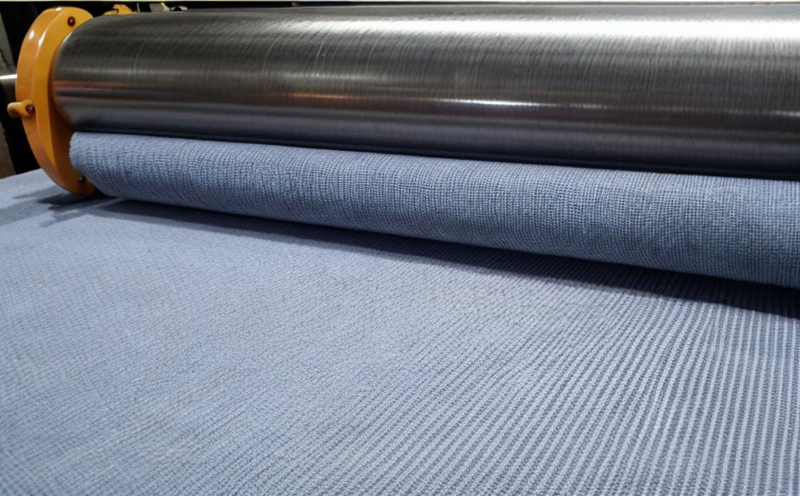Pilling resistance testing of textile fabrics
The Importance of Pilling Resistance Testing for Textile Fabrics Ensuring Quality and Durability
In the world of textiles, fabrics are subject to various forms of wear and tear that can affect their appearance, performance, and longevity. One common issue is pilling, where small balls of fiber form on the fabrics surface due to friction or abrasion. Pilling resistance testing is a crucial laboratory service that evaluates the ability of textile fabrics to withstand these forces, ensuring they remain durable and visually appealing.
At Eurolab, our team of experts provides comprehensive Pilling resistance testing services for textile manufacturers, designers, and quality control professionals who require accurate and reliable results. In this article, we will delve into the significance of Pilling resistance testing, its benefits, and why its essential for businesses to invest in this laboratory service.
What is Pilling Resistance Testing?
Pilling resistance testing involves subjecting textile fabrics to a controlled environment where they are subjected to mechanical stress, such as friction or abrasion. This can be achieved through various methods, including the Martindale Abrasion Test (BS EN ISO 12947-1) and the Rubbing Fastness Test (ISO 105-X12). These tests simulate real-world conditions, allowing fabric manufacturers to assess their products ability to withstand wear and tear.
Why is Pilling Resistance Testing Important?
Pilling resistance testing is a critical component of textile quality control. Here are some compelling reasons why its essential for businesses
Ensures Durability By evaluating a fabrics pilling resistance, manufacturers can guarantee that their products will maintain their appearance over time.
Enhances Quality Pilling resistance testing helps to identify areas where fabrics may require improvement, ensuring that they meet or exceed industry standards.
Reduces Waste and Costs By identifying potential issues early on, manufacturers can minimize waste, reduce costs associated with rework or replacement, and improve overall efficiency.
Complies with Regulations Many industries have specific requirements for pilling resistance, such as those related to textiles used in healthcare, hospitality, or sports. Eurolabs testing services ensure compliance with relevant regulations.
Key Benefits of Pilling Resistance Testing
Here are some key benefits of using Pilling resistance testing for textile fabrics
Improved Fabric Performance By evaluating pilling resistance, manufacturers can develop fabrics that perform better under real-world conditions.
Enhanced Customer Satisfaction Fabrics with good pilling resistance tend to last longer, reducing the need for frequent replacements and improving customer satisfaction.
Competitive Advantage Manufacturers who invest in Pilling resistance testing can differentiate themselves from competitors by offering high-quality products.
Reduced Risk of Product Failure By identifying potential issues early on, manufacturers can minimize the risk of product failure, which can lead to costly recalls or reputation damage.
Benefits for Different Industries
Pilling resistance testing is essential across various industries, including
Fashion and Apparel Textiles used in clothing, upholstery, and accessories require high pilling resistance to maintain their appearance over time.
Home Furnishings Fabrics used in upholstery, curtains, and bedding need to withstand heavy use and frequent washing.
Medical and Healthcare Textiles used in medical applications require exceptional durability and resistance to wear and tear.
Frequently Asked Questions
Here are some common questions about Pilling resistance testing
Q What types of fabrics can be tested for pilling resistance?
A Eurolab provides Pilling resistance testing services for a wide range of textile fabrics, including cotton, polyester, wool, blends, and more.
Q How long does the testing process take?
A The duration of testing varies depending on the method used, but most tests can be completed within a few hours to a day.
Q Can I request a specific testing protocol or standard?
A Yes, Eurolab offers customized testing protocols to meet specific industry requirements or client needs.
Conclusion
Pilling resistance testing is an essential laboratory service that helps textile manufacturers ensure the quality and durability of their products. By investing in this service, businesses can improve fabric performance, enhance customer satisfaction, and reduce the risk of product failure. At Eurolab, our team of experts provides comprehensive Pilling resistance testing services to help clients meet industry standards and regulations.
Dont compromise on quality choose Eurolab for your textile testing needs. Contact us today to learn more about our Pilling resistance testing services and how we can help you achieve excellence in the world of textiles.




